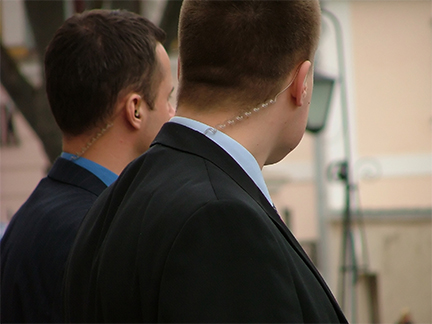

Shontell said that he and his neighbors started looking into the company after a series of break-ins on their street, having heard about it from friends who live in a nearby hillside neighborhood, and decided to install the cameras earlier this summer. “We would end our contract and take it back,” though he noted that with no access to a client’s account, the company has no way to monitor the systems for abuse. “It would be a breach of contract if they were to use it for other nefarious purposes,” he added. They can share that with their local law enforcement in the event of the crime if they choose,” said Flock’s Thomas. We don’t access it, we don’t share it with third parties, we don’t sell it. “Our customers are the ones who own all the footage. And while the onus is currently on Flock clients to send their footage to police to assist in an investigation, there’s little stopping police, once they know cameras are in place, from requesting footage from Flock users to track anyone who passes through the area - a practice that’s already common with Ring video. A neighborhood administrator could easily search local Flock records to track a spouse’s whereabouts.
Flock security software#
Now, the software can instantly spit out a list of all sightings, effectively creating a shot-by-shot map of a car’s whereabouts.įlock’s extension of the same technology into the private sphere raises another set of concerns: Private citizens are unlikely to receive the same training, or be subject to the same oversight, as public employees. Before, a human would have to pore over hours of footage from multiple cameras to try to piece together a car’s movement through a neighborhood, let alone an entire city.

Flock security license#
The leap from traditional security camera systems to those powered by machine vision, like automatic license plate readers, is as vast as the difference between an analog library and the modern internet. “License plate readers have been recognized by the Legislature and lots of police departments - and certainly civil liberty groups - as technology that can violate people’s privacy by tracking their movements without their consent,” said David Maass, senior investigative researcher with the Electronic Frontier Foundation, a digital civil liberties nonprofit. License plate reader technology, which has been used by the Los Angeles Police Department and agencies across the state for years, has raised concerns among privacy advocates, and the state of California is investigating the legality of its use in law enforcement. Recent reporting from Motherboard has revealed that local police have signed secret agreements to hawk Ring systems to their local communities, and BuzzFeed found that the company is testing out facial recognition technology with its clients in Ukraine. The message boards on Nextdoor, a social service that requires users to verify their addresses to ensure that only true locals are allowed to post, are rife with reports of suspicious noises, cars and people.įootage from Ring, a video doorbell company, often ends up on Nextdoor or shared on its in-house social network, Neighbors. “If we can reach further scale and put out more detective-like cameras on every street corner, we can solve more crime.”įlock’s push to put a camera on every corner comes at a time when smart cameras and social media are combining to create a newly paranoid model of neighborhood life. The company said it couldn’t share details of every case but did note that the technology was integral to a recent arrest of a ring of 24 sexual predators in north Georgia, and local media outlets report a steady drumbeat of burglaries and car thefts that Flock helped to solve. “Our cameras are helping solve two crimes every single day right now,” said Josh Thomas, Flock’s head of marketing. It’s backed by serious Silicon Valley investment: The company was a member of prominent start-up accelerator Y Combinator’s summer class of 2017 and has since raised nearly $20 million in funding from tech heavyweights including Matrix Partners and Peter Thiel’s Founders Fund. To allay privacy concerns, only the residents have access to the footage, and it automatically deletes after 30 days.Ĭosts vary depending on the client, but Flock generally charges $2,000 per camera per year for the service, and reports that more than 400 communities are using its product. If a burglar strikes, they can check and see which cars were spotted in the area around the time of the crime, and pass that footage on to police. The company’s pitch: With its cameras, residents can track every vehicle that passes through their neighborhood.


 0 kommentar(er)
0 kommentar(er)
